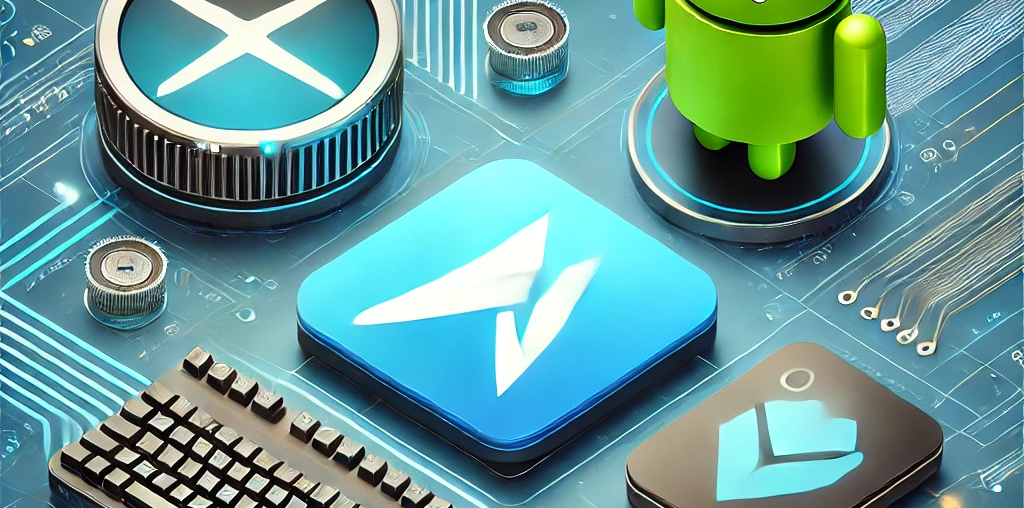Ever wondered when you can or cannot use the latest Java and Kotlin versions in Android development?
In this article I will try to give you the answer. As Android developers, we’re always excited to use the latest versions of Java and Kotlin. These new releases bring improved performance, enhanced syntax, and powerful features that can make our code more readable and maintainable. But can we always use the latest versions in Android development? The answer depends on several factors, including the Android Gradle Plugin (AGP), Android Studio version, and project dependencies.
In this article, I will explore when you can and when you cannot use the latest versions of Java and Kotlin in Android development. I will also provide a comprehensive table that outlines compatibility between AGP, Java, and Kotlin versions, along with their release dates.
Comprehensive Reference Table: AGP, Java, and Kotlin Compatibility with Release Dates
*Note: Java versions between 12 and 16 were non-LTS releases and are not officially supported in Android development.
Java’s Role in Android
Java has been at the heart of Android development since its inception. Java 8, released in March 2014, was the foundation of Android development for years. Later, with the release of Java 11 in September 2018, new features like `var` for local variables and other improvements became available. The most recent LTS release, Java 17, was launched in September 2021, offering even more powerful features like pattern matching, text blocks, and sealed classes.
However, Android doesn’t support all Java versions. Only LTS (Long-Term Support) versions, like Java 8, Java 11, and Java 17, are fully supported in Android projects. This means Java 12, 13, 14, 15, and 16, which are non-LTS versions, were skipped in Android’s official support matrix.
When You Can Use Newer Versions of Java
You can use newer versions of Java if:
– Your AGP version supports it. As shown in the table, AGP 7.0.x and above support Java 11, and AGP 8.0.x+ supports Java 17.
– Your Android Studio version supports the Java version you’re targeting. For example, Android Studio Flamingo (2022.2.1) supports Java 17.
– Your app’s minimum API level is high enough to accommodate new Java language features.
When You Cannot Use Newer Versions of Java
You cannot use the latest versions of Java in these scenarios:
– Older AGP versions: If your project is using an AGP 4.x.x version, you’re limited to Java 8.
– Non-LTS Java Versions: Versions like Java 12 to 16 are non-LTS and are not supported by Android.
– Device Compatibility: Some Java features introduced in newer versions may not be compatible with older Android devices (pre-API 26).
– Third-Party Libraries: If a library in your project is not compatible with newer Java versions, it may prevent you from upgrading.
Kotlin’s Growing Role in Android
Since Google announced official support for Kotlin in 2017, it has rapidly grown in popularity due to its concise syntax, null safety, and seamless integration with Android. Kotlin is now the primary language for Android development, especially with frameworks like Jetpack Compose relying heavily on Kotlin.
When You Can Use Newer Versions of Kotlin
You can use newer versions of Kotlin if:
– Your AGP version supports it. For example, AGP 8.0.x supports Kotlin 1.8.x — 1.9.x, while AGP 8.4.x and later support Kotlin 1.9.x+.
– Your project is using Jetpack Compose or other modern Android frameworks that are regularly updated to support the latest Kotlin versions.
When You Cannot Use Newer Versions of Kotlin
You may run into problems using newer versions of Kotlin in the following cases:
– Older AGP versions: If your project is using an older AGP version (like 7.x.x), you may not be able to upgrade to Kotlin 1.9.x+.
– Team or Project Requirements: In some enterprise projects, teams may freeze the Kotlin version at a specific point for stability reasons, especially in large codebases.
– Dependency Incompatibility: Some third-party libraries might not yet be compatible with the latest Kotlin versions, and upgrading Kotlin could lead to build or runtime errors.
To help you make informed decisions when upgrading Java or Kotlin versions, here are some general guidelines:
- Check AGP Compatibility: Always refer to the table above and AGP release notes to confirm which Java and Kotlin versions are supported for your current AGP version.
- Monitor Your Dependencies: Ensure that all third-party libraries and frameworks in your project are compatible with the newer Java or Kotlin versions. Using incompatible dependencies can lead to runtime issues.
- Test on Target Devices: After upgrading Java or Kotlin, thoroughly test your app on a range of Android devices, especially if you’re targeting older API levels. New language features might cause runtime errors on older devices.
- Keep Gradle and Android Studio Updated: Keeping your development environment up to date ensures you have the latest tools and compatibility improvements for new Java and Kotlin versions
Upgrading to the latest versions of Java and Kotlin in Android development can offer exciting new features and improved performance, but it’s not always straightforward. The compatibility of your Android Gradle Plugin (AGP), the dependencies you rely on, and the target Android devices all play a significant role in determining whether you can use the latest versions. By understanding the interplay between AGP, Java, and Kotlin versions — and referring to the comprehensive table provided in this article — you can make informed decisions on when to upgrade and when to stick with more stable versions.
Ultimately, staying up-to-date with Java and Kotlin versions while ensuring compatibility with your Android project’s needs is key to delivering high-quality, modern apps. Remember to always test thoroughly, monitor dependency support, and keep your development tools updated for the best results.
Dobri Kostadinov
Android Consultant | Trainer
Email me | Follow me on LinkedIn | Follow me on Medium | Buy me a coffee

